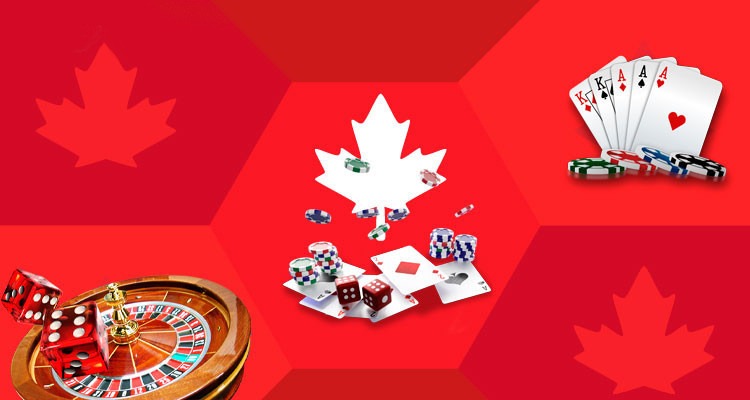Land-based and online gambling in Canada is very popular as a type of entertainment. Recent research has revealed that seventy-nine percent of Canadians gamble periodically. Of course, such a high engagement rate can’t leave indifferent those operators, which consider the country as one of the new markets to enter.
Before approaching any market, it is important to know the legal framework for the industry as well as the process of obtaining a license. This can be done through searching in a wide range of legislation news or by reading this article, which will provide insight into gambling regulations in Canada.
The history of gambling in Canada
Gambling in Canada stretches back to the 18th century. The industry has roots in Quebec. As horse racing was a popular activity not only to participate in but also to watch during those times, betting on this type of sport gained popularity.
Horse racing betting grew to a powerful industry, which was regulated in 1985. However, the process of transformation wasn’t that easy. There had been many prohibitions and modifications in regulations before the industry got official status. For example, in 1892, gambling was banned in the country by the Canadian Criminal Code. This decision was made by the government, which didn’t consider gambling as something appropriate for society. In 1900, the situation changed, and some games of luck were allowed in the country but only for charity purposes. Bingo was among them. In 1910, the ban on wagering on horse racing was lifted, and the fans of this sport got the opportunity to place bets again. After the changes in the regulations dated 1969, lotteries got special terms, which made them a source of funding for public purposes projects. In 1974, the lottery was launched to raise funds for the Olympic Games.
With the regulation of the market in 1985, brick-and-mortar gambling establishments were empowered to develop. Regulations switched from the state mode to the federal one. The gambling industry in Canada entered a new era when hundreds of casinos opened their doors for visitors across the country.
Such segregation transformed the regulations, and each province got its gambling laws. Read the information below to find out about the current gambling legislation in various regions of Canada.
Gambling provinces and territories in Сanada
Canada consists of three territories and ten provinces. As has been mentioned before, each of them has its own gambling regulations as well as dos and don’ts for service providers and players. Let’s consider the legislation of every province in the country and find out about its main gambling peculiarities.
Quebec
Quebec is the province of freedom and, what is more important, the most populated area of Canada. Speaking about Quebec gambling laws, the citizens of this province are free to choose and can decide themselves whether they want to play on foreign gambling platforms or enjoy products of the government-owned website – Espace Jeux. It includes all the most popular types of gambling entertainment – an online casino, lottery, bingo games, poker, instant games, and sports betting. In addition to this, the government offers a separate betting platform – Mise-o-jeu – which belongs to Loto-Québec.
Speaking about brick-and-mortar casinos, the province is represented by nine establishments:
- Casino de Montréal;
- Casino de Charlevoix;
- Casino du Lac-Leamy;
- Casino du Mont-Tremblant;
- Magic Palace Montreal;
- Salon de Jeux de Quebec;
- Salon de Jeux de Trois-Rivieres;
- Hippodrome Trois-Rivieres;
- Playground Poker Club.
Although the Quebec government tried to be a monopolist in the gambling industry, it didn’t succeed, which led to offers from privately-owned companies. Gambling is legal in Quebec under the Quebec Alcohol, Racing and Gaming Commission. If a website isn’t located in the country, the officials have no right to prevent it from an operation. Of course, the situation with offshore operators aroused the indignation of government-owned companies, which had a lack of customers. The law prohibiting the operation of foreign gambling companies was adopted, but later, the Supreme Court of Canada lifted restrictions. The case became an example for other provinces and showed that it doesn’t make sense to try to monopolize the market.
Alberta
The province of Alberta has also legalized almost all forms of gambling:
- casinos;
- video lottery terminals;
- lotteries;
- bingo;
- Sport Select, which is a set of sports betting games provided by Canadian lottery corporations.
According to the official information, gambling services are either owned by Alberta’s government or regulated by it. The illegal gambling category includes those types that aren’t regulated by the government. One of them is sports betting offered by bookmakers.
It is worth mentioning that gambling in this province is regulated by the AGLC – the agency, which controls the gaming sector. On the official body’s website, operators that want to apply for a license can find all the necessary information about the fees:
| License type | Fee | |
| Gaming licenses | ||
| Bingo licenses | License for a bingo event | $20/event |
| Revenue from card sales for bingo events during a year is over $150 000 | $30/event (during a year) | |
| Pull ticket license | $5/set of bagged pull tickets | |
| Raffle license | If a ticket value exceeds $20 000 but is less than $100 000 | $150 |
| If a ticket value is over $100 000 but less than $1 000 000 | $500 | |
| $1 000 000 or more | $1 000 | |
| Casino license | Casino at the exhibition | Number of gaming tables (without poker tables) x $35 times the number of days that the casino is licensed |
| Casinos, which are not at the exhibition | Number of gaming tables (without poker tables) x $15 times the number of days that the casino is licensed | |
| Facility license | ||
| Bingo facility license | For bingo associations | Free |
| For companies or individuals | $500 | |
| Casino facility license | $500 | |
| Racing facility license | $500 | |
In addition to online gambling in Alberta, twenty-five land-based casinos are located there.
British Columbia
British Columbia is the region with fifteen brick-and-mortar gaming establishments and only one betting website. The Gaming Control Act of the Province of British Columbia is the legislation, which regulates the industry there. The Gaming Policy and Enforcement Branch is a regulatory body. British Columbia Lottery Corporation is the monopolist, which operates all commercial gambling businesses in the province, except for wagering on horse racing. However, it enters into contracts with private providers for getting gambling facilities and equipment. Those companies, which are interested in conducting horse racing events, have to obtain a special license from the regulator.
Manitoba
The Liquor and Gaming Authority of Manitoba is the official body responsible for the control over the gaming vertical in this province. The main peculiarity of this region is that online gambling is prohibited there. In general, the industry’s legal framework is resting on the Criminal Code in terms of illegitimate gaming.
The following categories of licenses are available in Manitoba:
- bingo;
- breakopen;
- raffle;
- Texas hold ’em poker;
- Calcutta;
- sports draft;
- Monte Carlo event;
- midway;
- other types.
Ontario
Land-based and online gambling laws in Ontario are quite liberal, allowing the citizens of the province to choose the provider with which they want to gamble, including both government-owned and private. The Alcohol and Gaming Commission of Ontario is responsible for the gaming and horse racing verticals. The gambling industry is divided into several sectors: casino, lottery, iGaming, charitable gaming.
There are twenty-five land-based casinos and slot machine halls, which are governed by the Ontario Lottery and Gaming Corporation. The Ontario online gambling laws provide the opportunity for operators to apply for a license. The first step, which is necessary for the procedure of obtaining a license, is the registration on a web portal of the AGCO. Further, gambling companies have to prepare a package of documents. The opportunity to apply for licensing online appeared not so long ago – on September 12, 2021. This was done in order to create a competitive gaming market in Ontario.
New Brunswick
Unfortunately, the government of New Brunswick doesn’t have such a liberal approach to gambling as Ontario has. The citizens of this province have access only to one online gaming platform as well as two land-based casinos. However, the reasons for such a small number of gambling venues are unclear. In terms of the law, brick-and-mortar casinos are allowed to operate in the province. Besides, both gambling establishments belong to privately held companies.
As for internet gaming, residents of New Brunswick can gamble only via the Atlantic Lottery Corporation portal, which provides government-regulated services.
The following forms of gambling are legal in the province:
- casino gaming;
- video lottery terminals;
- lottery games;
- charity gaming;
- pari-mutuel betting on horse racing.
Nova Scotia
Nova Scotia Gaming Corporation, or the NSGC, manages the legal gambling industry in the province. Atlantic Lottery and Casino Nova Scotia are operators, which have an official right to offer gambling services in this area.
The following industry sectors are available in Nova Scotia:
- casinos;
- video lottery;
- ticket lottery.
The online gambling vertical is still in question in the province. According to the latest news, the Minister of Finances expressed doubts about whether Nova Scotia should have iGaming websites. He has emphasized that gambling has always been a contradictory industry because of problem gambling cases. However, the Atlantic Lottery Corporation ensures that all safety and responsible gambling measures will be in place on the newly launched website.
Newfoundland and Labrador
The province rejected to offer both online and land-based gambling. The only opportunity for gamblers to place a bet on something is wagering on sports events with sums, which don’t exceed the $250 via Pro-Line. As for brick-and-mortar casinos, the province’s Finance Minister states categorically that the policy will never permit casinos.
It goes without saying that Newfoundland and Labrador remains a honeypot for operators. The cooperation with the gaming agency of the province would result in a huge profit for them. At the same time, the governing body is sure that, even in the terms of increased revenue for the public purposes of the region, it isn’t a good idea to open casinos. The main reason for this is that provincial citizens won’t be interested in gambling, Newfoundland and Labrador isn’t likely to attract tourists as a gambling mecca.
Saskatchewan
The government of Saskatchewan didn’t permit the operation of online gambling websites in the province. The only regulated sector is the online lottery. Other forms of iGaming, such as online poker or sportsbook aren’t allowed. However, according to some sources, online gaming is a grey market there, which means that it is neither banned nor legal. Yes, the situation with online gambling laws in Canada can be ambiguous sometimes.
The land-based vertical, at the same time, provides more opportunities for gamblers. There are several casinos in Saskatchewan where players can enjoy the most popular types of gambling if they are older than nineteen.
Prince Edward Island
The picturesque maritime province didn’t ban land-based gambling. As for online gambling, players can wager only on the Pro-Line website. The Prince Edward Island Lotteries Commission supervises ticket lotteries, video lottery terminals, and pari-mutuel betting systems. The gambling watchdog is also responsible for preventing the citizens under nineteen from gambling.
Northwest Territories
This territory consists of five regions: Dehcho, Sahtu, North Slave, South Slave, and Inuvik. Those who prefer spending time in land-based casinos, won’t want to become the residents of the Northwest Territories as it doesn’t have gambling establishments. iGaming is represented by Sport Select – the only option for legal betting.
Yukon Territory
This territory’s gambling regulations are unusual as operators can’t get a long-term license but can obtain licensing, for example, for several days. It is another good example of quirky gambling laws in Canada. Users won’t find licensed online casinos in the Yukon Territory, except for Sport Select.
On the official website of Yukon, it is stated that only non-profit companies can obtain a license. Any forms of gambling organized by non-government or other companies for profit are considered illegal. What is more interesting, there is information about what is gaming and what is not on the site. According to it, sweepstakes, for example, aren’t gambling.
General gambling laws and regulations in Canada
Although Canada is divided into separate regions, there are common rules, which are applied to almost every territory. Here is the list of the major don’ts that cover the country as a whole.
- The legal gambling age in Canada is 19, but in some regions, it is allowed to gamble from 18.
- Not so long ago, the government allowed single-event sports betting in Canada, which was banned before. Such a change in sports betting activity became a landmark moment for the industry.
- The Criminal Code of Canada regulates gambling in the country. It states that every province has the right to decide whether gambling is legal or illegal in its territory. What is more unusual about the regulatory document, it considers gambling as an illegal service, which, however, can be provided based on certain rules.
- Speaking about the industry in Canada, it is important to mention the Kahnawake Gaming Commission, which is responsible for licensing in the iGaming sector. Currently, more than fifty online gaming platforms are licensed by the regulator. In general, the Kahnawake license has always been an attractive offer for operators as it doesn’t include taxes and is respected by many regulatory agencies worldwide. In addition to this, in comparison to other licenses, the operation permit from this Commission can be obtained within a short period.
- According to Canadian laws, money-based gambling advertising is prohibited in the country.
Organization of gambling in Canada
As has been mentioned above, many of the most popular types of gambling are allowed in the country, among them are the following:
- iGaming;
- land-based casinos;
- charitable gambling;
- sports betting;
- video lottery terminals;
- lotteries.
While everything is clear with the land-based gambling industry, the iGaming vertical has many questions. Online gambling is considered a grey area as it is neither prohibited nor permitted. Players can access gaming websites, however, operators are allowed to offer such services only if they hold a special license, which isn’t issued by the government. Due to this reason, Canadians often visit international gambling platforms, although it remains difficult to say whether an online casino is legal in Canada. One of the most interesting facts is that they spend approximately $4 billion per year on playing on offshore websites.
Biggest companies in the gambling industry in Canada
Despite all difficulties in the gambling market of Canada, the country is still interesting for operators in terms of business development.
According to the latest data, the Canadian market size is estimated at $13 billion. The number of gambling companies is 1 112 with 37 074 jobs. Like every market, Canada has its leaders. Read below to find out about the country’s biggest gambling companies in the online and retails sectors.
Online gambling companies in Canada
- The Stars Group Inc. – one of the largest gaming businesses in Canada, which belongs to Flutter Entertainment now. It is focused on providing online gambling services.
- Chartwell Technology – the company develops software for web-based casinos.
- FUN Technologies Inc. – the company owns a bunch of gambling websites.
- Parlay Games Inc. is a developer of software for bingo gaming.
- PlayNow.com – a platform managed by the British Columbia Lottery Corporation.
- Score Media and Gaming Inc. (theScore) – a digital media business covering wagering on sports and esports.
- The Intertain Group Limited – an online gaming company, offering bingo and other casino products.
- Tangelo Games Corp. – social casino gaming.
- DEQ Systems – a developer of gaming solutions for table games.
Land-based gambling companies
- Stronach Group – an entertainment business focused on the horse racing industry.
- Gateway Casinos & Entertainment – Canadian gaming operator, which owns twelve facilities across the country.
- Great Canadian Gaming Corporation – owns twenty-five gaming establishments, including casinos, horse racetracks, slot machine halls, and other gambling venues.
- Sask Gaming – the owner of several land-based casinos.
- Stronach Group – pari-mutuel betting and horse racing.
Read more: Top Canadian Betting Platforms
Differences and preferences of Canadian gamblers
Researching any market before entering it, one of the main things for operators to know about it is, of course, the differences and preferences of players. Official sources inform that over nineteen million citizens of Canada gamble. Moreover, Canada holds the 8th positing in the ranking of countries, which have the highest level of participation in iGaming.
Here are some important statistics about Canadian gamblers.
Forty-six percent of all gamblers in Canada are male, fifty-four percent – female. The majority of players are those aged 35-54 – 40%. Thiry percent are aged 18-34, thirty-one percent – 55+. The major part of gamblers are located in Ontario (39%). Quebec has 24% of all active gamblers. 13% are citizens of British Columbia.
iGaming is cheaper than the land-based version of this entertainment. That is why many Canadians prefer to gamble online. However, speaking about mobile gaming, women play casino games on handheld devices more often than men. Interestingly, Canada is one of a few countries where females use smartphones for gambling more frequently than men. Fifty-five percent of female players do this on a phone.
Lotteries and scratchcards are the favorite products of Canadians. Sixty-five percent of the country’s citizens buy lottery tickets, 36% – scratchies. At the same time, players from this country are also great admirers of slot machines. Nine percent of casino players aged 18-34 play slots on a constant basis.
Seventeen percent of players from this group play slots from time to time. Nine percent of players who are 34+ years old also play slot games constantly, twenty percent – sometimes. Table games are among Canadians’ top picks as well. Seven percent of 18-34-year-old gamblers play them constantly, sixteen percent – at times. Two percent of casino visitors aged 35+ choose table games quite often, while nine percent – on rare occasions. Poker attracts four percent of frequent casino players and eight percent of moderate gamblers.
Players of Canada spend pretty much on gambling. According to recent data about the market, an average gambler spends $825 per year. Some reports also inform that iGaming platforms return over 96% in wins, while brick-and-mortar casinos – 60%.
It goes without saying that if a country has a big number of casino players, the gambling addiction rate will also be high. This rule works with Canada. 220 000 of 350 million problem gamblers in the world are residents of Canada. The country’s gambling addicts waste $500 000 per year.
Secure online casino gambling for Canadians
As has been mentioned above, the majority of Canadians prefer foreign gambling websites when it comes to online gaming. Although the reliability of offshore websites raises doubts, services provided by government-owned companies lack popularity among gamblers in the country. The list of the best online casinos from the perspective of a Canadian player will consist of international websites only, excluding local platforms.
For example, speaking about placing bets on sports, the reason for this is that provincial gambling products offer limited betting options. For gamblers in Canada, local bookmaking websites are something that isn’t worthy of attention and falls short of quality in comparison to offshore bookies. The situation has changed a little bit with the legalization of single-event sports wagering. This attracted the attention of those bettors who were considering only foreign sports betting platform providers before.
Before the launch of single-event betting, only parlays were allowed. Such a type of stakes is more attractive for recreational bettors because it may result in bigger wins. However, it isn’t that easy to win as players stake on two matches at once. In addition to this, provincial lotteries usually have smaller payouts than offshore bookmakers.
The implementation of Bill C-221 followed many discussions concerning the necessity of the legalization of single-game sports betting. The main reason for the government to consider this opportunity has become the fact that billions of dollars, which can be spent on public purposes, are given to offshore websites.
The regulation and taxation of single-event betting was a try to return players’ attention to provincial lotteries. The time will show whether the situation will change for better in the local gambling market. Currently, Canadian gamblers are still more focused on overseas websites. Many of them aren’t secure, licensed, or verified by regulatory bodies, but bettors still choose them due to more enticing offers and bigger payouts.
Future of online gambling in Canada
Estimating the current state of the gambling industry in Canada and the level of participation in it, as well as regulatory innovations, it seems that the country has all opportunities to develop the vertical. The above-mentioned Bill C-221 played a great role in this, of course.
After the Canadian government passed the law and single-game wagering on sports was legalized, the market began to look even more promising. Most notably, it is an ample opportunity for state-run gambling platforms. They got a chance to add this type of betting to their online offer and increase their audience. The scenario is going to follow the US’ examples where the decision on the sports betting sector has been made by each state separately. Canada’s provinces can decide themselves whether they need this option, keeping in mind that for the country as a whole, this law opens a billion-dollar market. According to the government representatives who commented on the bill when it was implemented, it would help to get the money from the grey market back to the regulated space.
The OLG – Ontario Lottery and Gaming Corporation – was the first to announce its plans to benefit from the opportunity. It has started to advertise the new product before its launch, being in advance of private operators, which will get a permit to enter the market later. Such a confident start has allowed the government-owned gambling company to establish itself as one of the market leaders, which will acquire the majority of customers.
British Columbia is another region that can get a considerable piece of the Canadian betting market pie. It is a strong competitor for Ontario as the province holds several sports franchises. The British Columbia Lottery Corporation’s website got over a thousand new users after the law came in force. This resulted in a spike in the number of bets as well as an increase in GGR.
Other provinces, which were providing parlays before, also jumped at the opportunity to add a new product to the sports betting offer. However, not all of them succeeded in this. For instance, the Alberta Gaming, Liquor, and Cannabis Commission (AGLC) launched a product, which wasn’t high-quality and attractive for customers, and this only aroused indignation among them.
One of the major topics to discuss is whether the provinces are ready to invite private operators to the market. According to the industry experts, Ontario is expected to be the only region, which will provide this chance to privately-owned companies. The governments of other provinces don’t seem to be very interested in this opportunity.
The regulated single-event sports betting market became a target not only for Canadian companies but for US gambling industry giants as well. It has become known that some of them have already made acquisition offers to Canada-based businesses. Nevertheless, referring to reliable sources, Canada’s sports betting market can be divided like this in the nearest future:
The Canadian gambling industry has a high potential in both sectors land-based and online. Not only sports betting but also other verticals are much in demand by the country’s players who are interested in high-quality and secure gambling. The moves towards the regulated and safe gaming environment in the most popular industry sectors make Canada a must-consider country for every operator, which wants to cover wider geo.
Read more: Best Canadian Online Casinos












